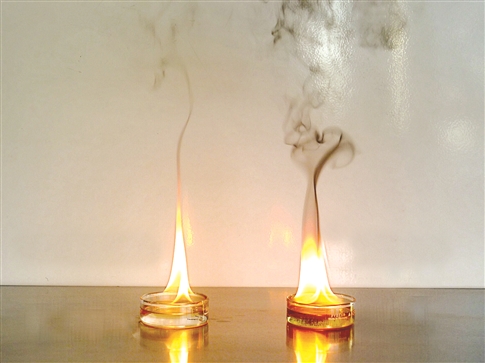Related News
Related News
-
EWEB opens application for 2024 Electric Mobility Community Grants
Grant awards of up to $30,000 to cover costs associated with electric mobility projects.
Find Out More -
Upgrades to Eugene's downtown electric network continue
You may have noticed construction this week on the corner of 7th and Pearl Street. That’s because crews replaced a corroded, aging vault with an innovative, new Voltek vault. The Voltek design allows for the new infrastructure to be built inside of the existing aging vault. We’re able to install the new vault while the cables are still energized, minimizing disruption to customers and traffic while cutting construction time in half.
Find Out More -
Celebrate Earth Month by taking charge of your home's energy use
This Earth Month, learn how you can reduce your energy usage to help protect our planet and reduce carbon emissions.
Find Out More -
Currin Substation: End of year update
EWEB Engineer Philip Peterson explains what's been happening in the final stretch to complete the substation rebuild.
Find Out More -
EWEB Recognized with Excellence in Communications Awards from American Public Power Association
We are proud to have been recognized with two Excellence in Public Power Communications Awards for 2023 from the American Public Power Association (APPA).
Find Out More -
EWEB now offering a Smart Thermostat rebate program
EWEB is excited to announce a new residential rebate program to provide electric customers with free or greatly discounted Smart Thermostats to customers whose primary source of heating is from an electric forced-air furnace or heat pump.
Find Out More -
Have an energy efficient and water conscious holiday season
The holiday season is officially upon us. Whether you are celebrating a special holiday or just sharing a meal with close friends and family, hosting can cause some unexpected energy and water usage increases – resulting in a higher utility bill. We’ve prepared some tips on how you can save energy and water this holiday season.
Find Out More -
River Road Substation returns to service after infrastructure upgrades
Supply chain shortages and proactive infrastructure investments, including constructing seismic foundations and implementing control modernization, have played a role in the substation's return-to-service timeline.
Find Out More -
The importance of managed electric vehicle charging explained
EWEB has much to handle related to EV charging infrastructure. To ensure that the switch from gasoline-powered vehicles to electric vehicles reduces the most emissions possible at the lowest cost possible, we need to implement managed EV charging.
Find Out More -
EWEB seeks public input on electric vehicle, demand response standards
EWEB is seeking public input on the potential adoption of updated standards for electric vehicles (EVs) and demand response programs. The potential standards are derived from the Public Utility Regulatory Policies Act, or PURPA.
Find Out More -
Salmon Return to Finn Rock Reach
Finn Rock Reach and other restoration projects throughout the Middle McKenzie provide conditions to help young fish survive to adulthood.
Find Out More -
EWEB programs reflect community values
EWEB is here to serve our customer-owners and provides programs that reflect the values of our community.
Find Out More -
Where is EWEB in planning our future electricity supply?
In August, we reached a milestone: EWEB’s five-member elected Board of Commissioners approved an action plan to guide our energy supply choices for the next 2-3 years. How did we get here?
Find Out More -
Planning for a Future of Reliable, Affordable, Environmentally Responsible Energy
The challenges revealed by Eugene Water & Electric Board’s integrated resource planning process mirror those facing the Northwest.
Find Out More -
EWEB’s heat driven call to conserve energy yields major savings
EWEB is likely to implement similar, formalized “demand response” programs in the future.
Find Out More - Show More
Alternative Fuel Reduces Emissions
February 09, 2016

For the past several years, the Eugene Water & Electric Board has been using alternative fuels such as ethanol and bio-diesel as a way to meet fossil fuel and carbon emission reduction goals. In the fall of 2015, the utility's fleet operations stepped out on a limb to try something different - renewable diesel, or R99.
Renewable diesel, also known as green diesel or second-generation biodiesel, is the product of fats or vegetable oils-alone or blended with petroleum-refined by a hydrogenation process rather than the chemical process by which biodiesel is made.
Renewable diesel can be used in engines that are designed to run on conventional diesel fuel, so no retrofitting is needed. EWEB also discovered that renewable diesel is much easier of vehicle engines and diesel particulate filter systems.
The fact that UPS and the city of San Francisco made commitments to switch over to this new product caught Fleet Supervisor Gary Lentsch's attention.
"When we adopted our Greenhouse Gas Reduction goals in 2010, I admit that they seemed lofty and possibly unattainable," Lentsch said. "We were making progress by replacing older vehicles with more fuel-efficient hybrid and/or electric cars, but price and cold-weather performance were limiting factors to alternative fuel-blending."
Renewable diesel is an emerging market, so EWEB, in partnership with the Oregon Department of Energy, teamed up with Eugene-based The Jerry Brown Co. to act as the local supplier.
Converting to R99 for its 85 diesel-fueled vehicle means that EWEB will exceed its 2030 fossil fuel usage reduction target of 50 percent by as early as next year, while providing similar, if not better performance than conventional diesel, Lentsch said.
Other local agencies, including Lane County Public Works, are taking notice and following EWEB's lead. "They all see this new fuel as a win-win solution to reduce our fossil fuel footprint without impacting operations," Lentsch said.
EWEB received its first shipment of R99 from The Jerry Brown Co. in September for field-testing, at a cheaper price than bio-diesel, and found no performance hiccups. Another bonus - the R99 purchased had about 70 percent less carbon content than conventional diesel, and 60 percent less than biodiesel.

